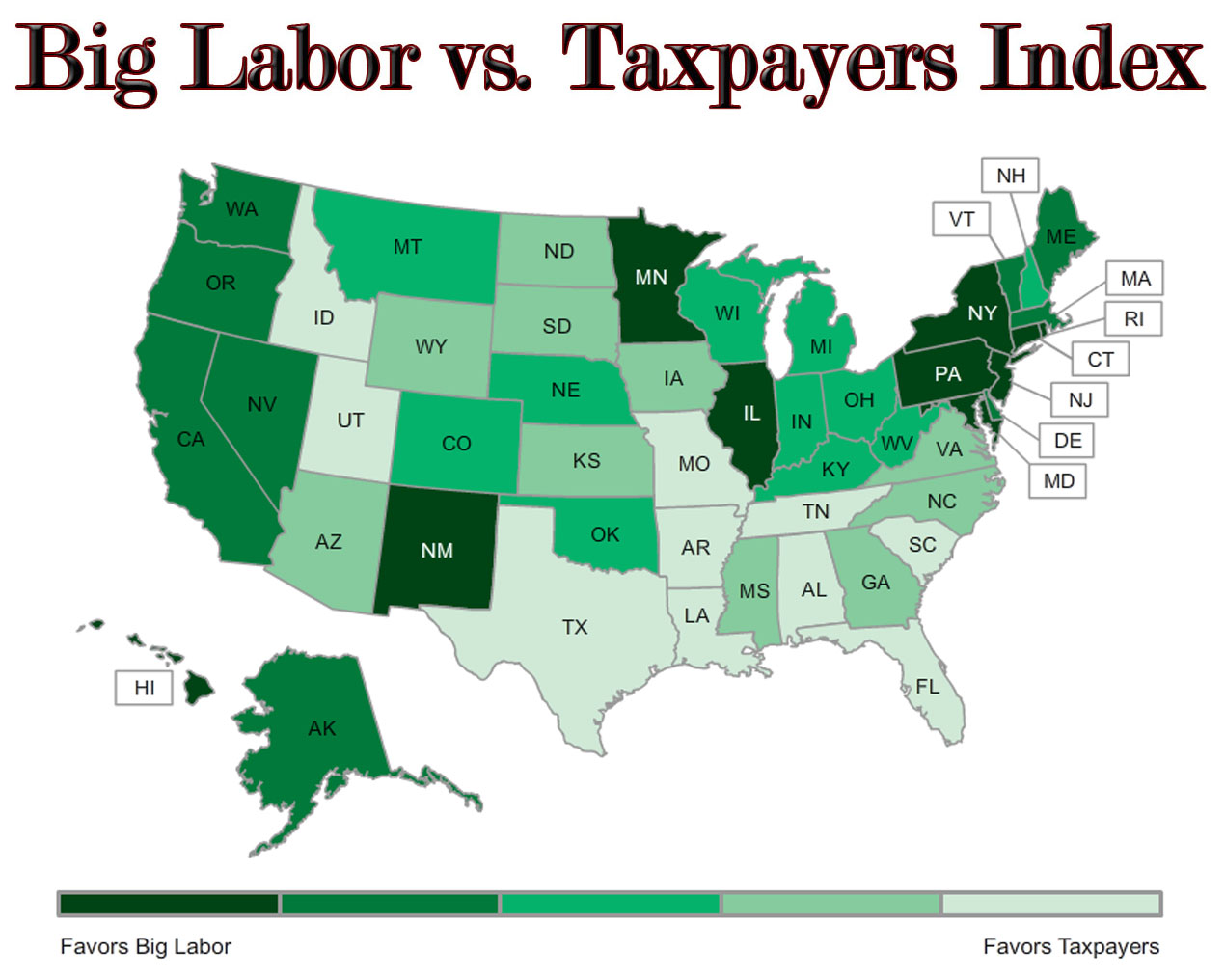Media
Big Labor’s Stranglehold in Pennsylvania
 Here’s a depressing, if unsurprising, statistic: In a new index assessing whether states favor government union bosses or taxpayers, Pennsylvania ranks 5th worst. The Competitive Enterprise Institute ranked all 50 states on 23 dimensions, including collective bargaining laws, pension funding, government union density and right-to-work laws. Out of a possible 40 points, Pennsylvania snagged only seven. (Tennessee had the best environment for taxpayers, at 36 points, while New York was the worst, with a paltry four points).
Here’s a depressing, if unsurprising, statistic: In a new index assessing whether states favor government union bosses or taxpayers, Pennsylvania ranks 5th worst. The Competitive Enterprise Institute ranked all 50 states on 23 dimensions, including collective bargaining laws, pension funding, government union density and right-to-work laws. Out of a possible 40 points, Pennsylvania snagged only seven. (Tennessee had the best environment for taxpayers, at 36 points, while New York was the worst, with a paltry four points).
The gloomy facts contributing to Pennsylvania’s woeful ranking: Half of government workers, which include public school teachers, are unionized compared to 9.3 percent in the private sector. The unions’ ability to collectively bargain allows them to maintain a political stranglehold over the use of taxpayer money—and drive up demand for public services.
Unions also fund major political lobbying efforts by drawing automatic dues or fees from workers’ pay checks, whether or not the workers are union members (Pennsylvania has no pay check protection law). Decades of bad labor policy is keeping Pennsylvania in the economic doldrums. But adopting several reforms would foster the job creation growing states such as Florida or Texas enjoy.